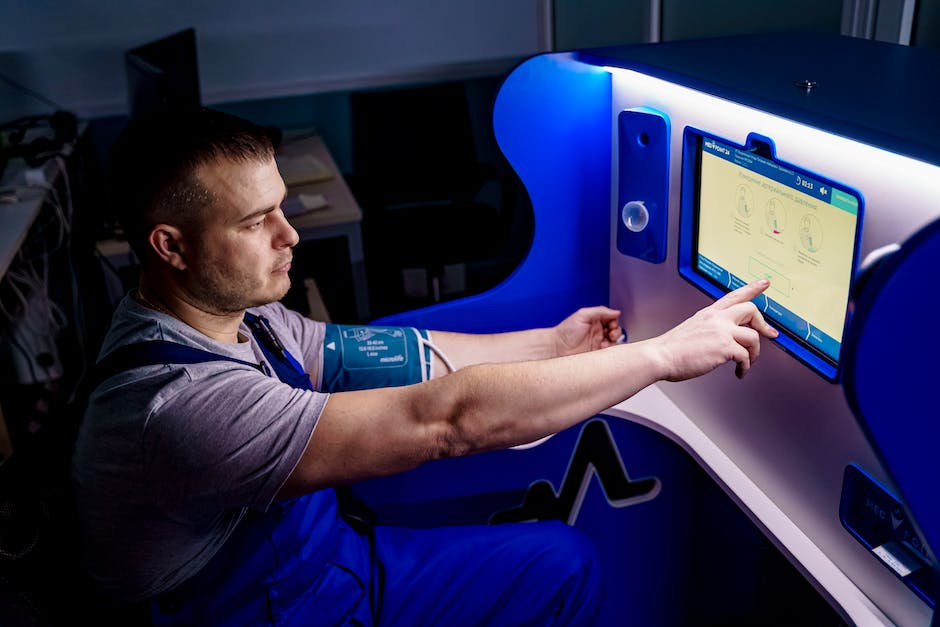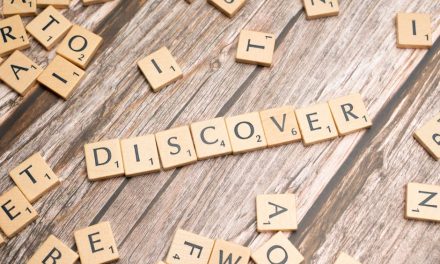Table of Contents
- Introduction
- Personal Development: 13 Self-Assessment Examples for Growth
- Career Advancement: Top 13 Self-Assessment Examples for Professional Success
- Emotional Intelligence: Enhancing Self-Awareness with 13 Self-Assessment Examples
- Leadership Skills: 13 Self-Assessment Examples for Effective Leadership
- Q&A
- Conclusion
Top 13 Self-Assessment Examples: Unleash Your Full Potential
Introduction
Self-assessment is a valuable tool that allows individuals to reflect on their skills, strengths, weaknesses, and overall performance. It helps in identifying areas for improvement and setting goals for personal and professional development. In this article, we will explore 13 self-assessment examples that cover various aspects of life, including career, relationships, health, and personal growth. These examples will provide you with a starting point to evaluate yourself and make positive changes in your life.
Personal Development: 13 Self-Assessment Examples for Growth

Self-assessment is a crucial tool for personal development and growth. It allows individuals to reflect on their strengths, weaknesses, and areas for improvement. By engaging in self-assessment, individuals can gain a deeper understanding of themselves and make informed decisions about their personal and professional lives. In this article, we will explore 13 self-assessment examples that can help individuals on their journey of personal development.
1. Personality Assessment: Understanding one’s personality traits is essential for personal growth. Assessments like the Myers-Briggs Type Indicator (MBTI) can provide insights into an individual’s preferences, strengths, and weaknesses.
2. Emotional Intelligence Assessment: Emotional intelligence plays a vital role in personal and professional success. Assessments like the Emotional Quotient Inventory (EQ-i) can help individuals understand their emotional strengths and areas for improvement.
3. Strengths Assessment: Identifying and leveraging one’s strengths is crucial for personal growth. Assessments like the CliftonStrengths assessment can help individuals discover their unique talents and develop strategies to maximize their potential.
4. Values Assessment: Understanding one’s core values is essential for making aligned decisions. Assessments like the Personal Values Assessment can help individuals identify their most important values and align their actions accordingly.
5. Skills Assessment: Assessing one’s skills is crucial for personal and professional development. Assessments like the Skills Profiler can help individuals identify their strengths and areas for improvement in various skill areas.
6. Interests Assessment: Exploring one’s interests can lead to fulfilling personal and professional pursuits. Assessments like the Strong Interest Inventory can help individuals identify their interests and explore career paths that align with their passions.
7. Time Management Assessment: Effective time management is essential for productivity and success. Assessments like the Time Management Matrix can help individuals assess their current time management practices and develop strategies for improvement.
8. Communication Style Assessment: Understanding one’s communication style is crucial for effective interpersonal relationships. Assessments like the DiSC assessment can help individuals identify their communication preferences and adapt their style to better connect with others.
9. Conflict Management Assessment: Conflict is inevitable in personal and professional relationships. Assessments like the Thomas-Kilmann Conflict Mode Instrument can help individuals understand their preferred conflict management style and develop strategies for resolving conflicts effectively.
10. Leadership Style Assessment: Assessing one’s leadership style is crucial for personal and professional growth. Assessments like the Leadership Practices Inventory can help individuals understand their leadership strengths and areas for improvement.
11. Goal Setting Assessment: Setting and achieving goals is essential for personal growth. Assessments like the Goal Setting Worksheet can help individuals assess their current goal-setting practices and develop strategies for setting and achieving meaningful goals.
12. Stress Management Assessment: Managing stress is crucial for overall well-being. Assessments like the Perceived Stress Scale can help individuals assess their stress levels and develop strategies for stress management.
13. Career Assessment: Assessing one’s career goals and aspirations is essential for professional growth. Assessments like the Career Values Scale can help individuals identify their career values and align their career choices accordingly.
Engaging in self-assessment is a powerful tool for personal development and growth. By exploring these 13 self-assessment examples, individuals can gain valuable insights into their personality, emotions, strengths, weaknesses, and areas for improvement. Armed with this knowledge, individuals can make informed decisions about their personal and professional lives, set meaningful goals, and develop strategies for growth. Self-assessment is an ongoing process, and individuals should regularly revisit these assessments to track their progress and continue their journey of personal development.
Career Advancement: Top 13 Self-Assessment Examples for Professional Success
Self-assessment is a crucial tool for professional growth and success. It allows individuals to reflect on their skills, strengths, and weaknesses, and identify areas for improvement. By conducting regular self-assessments, professionals can take control of their career advancement and make informed decisions about their professional development. In this article, we will explore the top 13 self-assessment examples that can help professionals achieve professional success.
1. Skills Assessment: Assessing your skills is essential to understand your strengths and weaknesses. Identify the skills you possess and determine which ones need improvement to excel in your field.
2. Goal Setting: Setting clear and achievable goals is crucial for professional success. Assess your current goals and determine if they align with your long-term aspirations. Adjust them accordingly to stay on track.
3. Time Management: Evaluate how effectively you manage your time. Assess your ability to prioritize tasks, meet deadlines, and eliminate time-wasting activities. Identify areas where you can improve your time management skills.
4. Communication Skills: Assess your communication skills, both verbal and written. Determine if you effectively convey your ideas, actively listen, and adapt your communication style to different audiences. Identify areas for improvement, such as public speaking or writing skills.
5. Leadership Skills: Evaluate your leadership abilities, including your ability to motivate and inspire others, make decisions, and delegate tasks. Identify areas where you can enhance your leadership skills to advance in your career.
6. Emotional Intelligence: Assess your emotional intelligence, which includes self-awareness, self-regulation, empathy, and social skills. Determine if you effectively manage your emotions and understand others’ emotions. Identify areas where you can improve your emotional intelligence.
7. Problem-Solving Skills: Evaluate your problem-solving abilities. Assess your analytical thinking, creativity, and ability to find innovative solutions to challenges. Identify areas where you can enhance your problem-solving skills.
8. Networking Skills: Assess your networking skills and determine if you effectively build and maintain professional relationships. Evaluate your ability to connect with others, establish rapport, and leverage your network for career opportunities.
9. Adaptability: Evaluate your adaptability to change. Assess your ability to embrace new technologies, work in diverse teams, and handle unexpected situations. Identify areas where you can improve your adaptability skills.
10. Work-Life Balance: Assess your work-life balance and determine if you effectively manage your personal and professional commitments. Evaluate if you prioritize self-care and maintain a healthy work-life balance.
11. Professional Development: Evaluate your commitment to professional development. Assess if you actively seek opportunities to learn and grow in your field. Identify areas where you can enhance your professional development efforts.
12. Ethical Standards: Assess your adherence to ethical standards in your professional life. Evaluate if you make ethical decisions, maintain integrity, and uphold professional ethics. Identify areas where you can improve your ethical standards.
13. Self-Reflection: Assess your ability to reflect on your actions, learn from your mistakes, and continuously improve. Evaluate if you take time for self-reflection and use it as a tool for personal and professional growth.
In conclusion, self-assessment is a powerful tool for professional success. By conducting regular self-assessments in various areas, professionals can identify their strengths and weaknesses and make informed decisions about their career advancement. The top 13 self-assessment examples discussed in this article provide a comprehensive framework for professionals to evaluate their skills, set goals, and enhance their professional development efforts. By utilizing these self-assessment examples, professionals can take control of their career advancement and achieve long-term success.
Emotional Intelligence: Enhancing Self-Awareness with 13 Self-Assessment Examples
Emotional intelligence is a crucial skill that can greatly enhance self-awareness and personal growth. By understanding and managing our emotions effectively, we can navigate through life with greater ease and build stronger relationships with others. One effective way to develop emotional intelligence is through self-assessment. In this article, we will explore 13 self-assessment examples that can help individuals enhance their self-awareness and improve their emotional intelligence.
Self-assessment is a process of introspection and reflection that allows individuals to gain a deeper understanding of themselves. It involves evaluating one’s thoughts, feelings, and behaviors in order to identify strengths, weaknesses, and areas for improvement. By engaging in self-assessment, individuals can develop a clearer picture of their emotional intelligence and take steps towards personal growth.
One self-assessment example is the Emotional Intelligence Appraisal, which measures various aspects of emotional intelligence, including self-awareness, self-regulation, motivation, empathy, and social skills. This assessment provides individuals with a comprehensive understanding of their emotional intelligence and offers suggestions for improvement.
Another self-assessment example is the Myers-Briggs Type Indicator (MBTI), which assesses personality preferences. By understanding their personality type, individuals can gain insights into their emotional tendencies and learn how to better manage their emotions in different situations.
The Enneagram is another self-assessment tool that can enhance self-awareness. It categorizes individuals into nine different personality types, each with its own set of strengths and weaknesses. By understanding their Enneagram type, individuals can gain a deeper understanding of their emotional patterns and develop strategies for personal growth.
The StrengthsFinder assessment is a self-assessment tool that focuses on identifying an individual’s strengths. By understanding their unique strengths, individuals can leverage them to enhance their emotional intelligence and achieve greater success in various aspects of life.
The DISC assessment is another self-assessment tool that measures an individual’s behavioral style. By understanding their behavioral tendencies, individuals can gain insights into their emotional responses and learn how to adapt their behavior to different situations.
The Emotional Quotient Inventory (EQ-i) is a self-assessment tool that measures emotional intelligence across various domains, including self-perception, self-expression, interpersonal relationships, decision-making, and stress management. This assessment provides individuals with a comprehensive understanding of their emotional intelligence and offers strategies for improvement.
The Big Five Personality Traits assessment is a self-assessment tool that measures an individual’s personality across five dimensions: openness, conscientiousness, extraversion, agreeableness, and neuroticism. By understanding their personality traits, individuals can gain insights into their emotional tendencies and learn how to manage their emotions effectively.
The Values in Action (VIA) survey is a self-assessment tool that measures an individual’s character strengths. By understanding their character strengths, individuals can develop a deeper sense of self-awareness and align their actions with their core values.
The Emotional Competence Inventory (ECI) is a self-assessment tool that measures emotional intelligence across various competencies, including self-awareness, self-regulation, empathy, and social skills. This assessment provides individuals with a detailed understanding of their emotional intelligence and offers strategies for improvement.
The Leadership Practices Inventory (LPI) is a self-assessment tool that measures an individual’s leadership skills. By understanding their leadership style, individuals can gain insights into their emotional intelligence and learn how to lead with greater effectiveness.
The Conflict Dynamics Profile (CDP) is a self-assessment tool that measures an individual’s conflict management style. By understanding their conflict management tendencies, individuals can gain insights into their emotional responses and learn how to manage conflicts more effectively.
The Life Values Inventory (LVI) is a self-assessment tool that measures an individual’s values and priorities. By understanding their core values, individuals can gain insights into their emotional motivations and make decisions that align with their values.
The Emotional Intelligence Skills Assessment (EISA) is a self-assessment tool that measures emotional intelligence across various skills, including self-awareness, self-regulation, empathy, and relationship management. This assessment provides individuals with a comprehensive understanding of their emotional intelligence and offers strategies for improvement.
In conclusion, self-assessment is a powerful tool for enhancing self-awareness and improving emotional intelligence. By engaging in self-assessment, individuals can gain insights into their emotional tendencies, strengths, and weaknesses, and take steps towards personal growth. The 13 self-assessment examples discussed in this article provide individuals with a variety of tools to enhance their self-awareness and develop their emotional intelligence. By utilizing these self-assessment tools, individuals can navigate through life with greater ease and build stronger relationships with others.
Leadership Skills: 13 Self-Assessment Examples for Effective Leadership
Effective leadership is crucial for the success of any organization. A good leader not only possesses the necessary skills and knowledge but also has the ability to assess their own strengths and weaknesses. Self-assessment is an important tool that allows leaders to evaluate their performance and make necessary improvements. In this article, we will explore 13 self-assessment examples for effective leadership.
1. Communication Skills: A leader must be able to effectively communicate with their team members. Assess your communication skills by evaluating how well you listen, speak, and convey information. Are you able to clearly articulate your thoughts and ideas?
2. Decision-Making: Leaders are often faced with making important decisions. Assess your decision-making skills by reflecting on past decisions. Did you consider all the relevant information? Were your decisions effective and well-thought-out?
3. Problem-Solving: Leaders are responsible for finding solutions to problems. Assess your problem-solving skills by evaluating how well you analyze problems and come up with creative solutions. Are you able to think critically and find innovative solutions?
4. Emotional Intelligence: A leader with high emotional intelligence can understand and manage their own emotions and those of others. Assess your emotional intelligence by reflecting on how well you handle stress, conflicts, and difficult situations. Are you able to empathize with others and build strong relationships?
5. Adaptability: In today’s fast-paced world, leaders must be able to adapt to change. Assess your adaptability by reflecting on how well you handle change and uncertainty. Are you open to new ideas and willing to embrace change?
6. Time Management: Leaders often have multiple responsibilities and tasks to juggle. Assess your time management skills by evaluating how well you prioritize tasks and manage your time. Are you able to meet deadlines and stay organized?
7. Delegation: Leaders must be able to delegate tasks effectively to their team members. Assess your delegation skills by reflecting on how well you assign tasks and empower your team. Are you able to trust others and give them the autonomy to complete their work?
8. Conflict Resolution: Leaders must be able to resolve conflicts and maintain a harmonious work environment. Assess your conflict resolution skills by reflecting on how well you handle conflicts and disagreements. Are you able to find win-win solutions and promote collaboration?
9. Team Building: Leaders must be able to build and motivate a high-performing team. Assess your team-building skills by evaluating how well you foster teamwork and create a positive work culture. Are you able to inspire and motivate your team members?
10. Strategic Thinking: Leaders must be able to think strategically and set long-term goals for their organization. Assess your strategic thinking skills by reflecting on how well you plan and set goals. Are you able to align your actions with the overall vision of the organization?
11. Accountability: Leaders must take responsibility for their actions and hold themselves accountable. Assess your accountability by reflecting on how well you take ownership of your mistakes and learn from them. Are you able to admit when you are wrong and take corrective actions?
12. Continuous Learning: Leaders must be committed to continuous learning and self-improvement. Assess your commitment to learning by reflecting on how often you seek feedback and engage in professional development activities. Are you open to learning from others and staying updated with industry trends?
13. Ethical Leadership: Leaders must demonstrate ethical behavior and act with integrity. Assess your ethical leadership by reflecting on how well you uphold ethical standards and make decisions based on moral principles. Are you able to lead by example and inspire trust in others?
In conclusion, self-assessment is a valuable tool for leaders to evaluate their skills and make necessary improvements. By assessing their communication skills, decision-making abilities, problem-solving skills, emotional intelligence, adaptability, time management, delegation skills, conflict resolution abilities, team-building skills, strategic thinking, accountability, commitment to continuous learning, and ethical leadership, leaders can become more effective in their roles. Self-assessment is an ongoing process that allows leaders to grow and develop as they strive to become the best leaders they can be.
Q&A
1. What are some examples of self-assessment in the workplace?
– Setting personal goals and evaluating progress
– Reflecting on strengths and weaknesses
– Assessing communication and teamwork skills
– Evaluating time management and organization abilities
2. What are some examples of self-assessment in education?
– Reflecting on academic performance and progress
– Assessing study habits and learning strategies
– Evaluating critical thinking and problem-solving skills
– Identifying areas for improvement and setting learning goals
3. What are some examples of self-assessment in personal development?
– Reflecting on personal values and beliefs
– Assessing emotional intelligence and self-awareness
– Evaluating personal strengths and weaknesses
– Identifying areas for personal growth and setting goals
4. What are some examples of self-assessment in health and wellness?
– Assessing physical fitness and overall health
– Reflecting on mental and emotional well-being
– Evaluating lifestyle choices and habits
– Identifying areas for improvement and setting health goals
Conclusion
In conclusion, self-assessment is a valuable tool for personal and professional growth. The top 13 self-assessment examples discussed in this article provide a range of options for individuals to evaluate their skills, strengths, weaknesses, and goals. By engaging in self-reflection and utilizing these assessment methods, individuals can gain a better understanding of themselves, make informed decisions, and take steps towards self-improvement.




